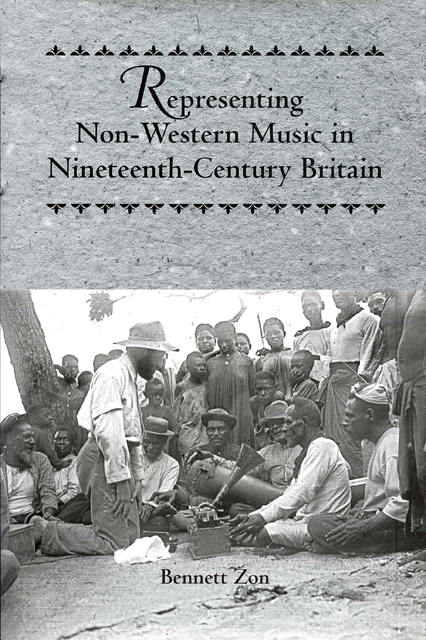Book contents
- Frontmatter
- Dedication
- Contents
- List of Illustrations
- Preface
- Acknowledgments
- Introduction Humanizing the Musical Savage: Orientalism and Racism in the History of British Ethnomusicology
- Part One Early Anthropological Influences
- Part Two Musicology in Transition to Evolution
- Part Three Individualism and the Influence of Evolution: Charles Samuel Myers and the Role of Psychology
- Part Four Retaining Cultural Identity: A. H. Fox Strangways and the Problems of Transcription
- Epilogue The “Ethnomusicology” in Long Nineteenth-Century Representations of Non-Western Music
- Works Cited
- Index
- Eastman Studies in Music
Chapter Fifteen - A. H. Fox Strangways and Attitudes Toward Song Translation
Published online by Cambridge University Press: 10 March 2023
- Frontmatter
- Dedication
- Contents
- List of Illustrations
- Preface
- Acknowledgments
- Introduction Humanizing the Musical Savage: Orientalism and Racism in the History of British Ethnomusicology
- Part One Early Anthropological Influences
- Part Two Musicology in Transition to Evolution
- Part Three Individualism and the Influence of Evolution: Charles Samuel Myers and the Role of Psychology
- Part Four Retaining Cultural Identity: A. H. Fox Strangways and the Problems of Transcription
- Epilogue The “Ethnomusicology” in Long Nineteenth-Century Representations of Non-Western Music
- Works Cited
- Index
- Eastman Studies in Music
Summary
Implicit in Day’s conception of transcription is an aim to universalize music, and it is this type of universalism that Fox Strangways seems to imbibe. Hipkins, for example, suggests that Day does more than situate Indian music within the framework of Western national music scholarship. He universalizes music by equalizing the Western perception of previously marginalized Eastern musics:
He [Day] shows us the existence of a really intimate expressive melodic music, capable of greatest refinement of treatment, and altogether outside the experience of the Western musician. What we learn from such inquiries is that the debated opinions of musical theorists, the cherished beliefs of those who devote themselves to the practice of the art, the deductions we evolve from historic studies—all have to be submitted to larger conceptions, based upon a recognition of humanity as evolved from the teachings of ethnology. We must forget what is merely European, national, or conventional, and submit the whole of the phenomena to a philosophical as well as sympathetic consideration.
In much the same manner, as is shown below, A. H. Fox Strangways universalizes yet culturally individuates music, but rather than basing his ideas on transcription, as Day does, on issues of a more overtly practical kind (music as practice), he grounds his methodology in the context of linguistic translation (music as translation). Thus, in the context of song translation Fox Strangways speaks of that “strange familiarity,” arguing for the use of a “foreignizing,” as opposed to domesticating, type of language.
The translation theorist Lawrence Venuti divides translation into two types: a “foreignizing” translation that incorporates foreign elements from the original, and a “domesticating” one that does not. Because of its illusory fluency within its translated (as opposed to original) language, the “domesticating” translation is seen to be morally inferior to the “foreignizing” one. The “domesticating” translation makes the translator, as well as the original creation, invisible, as if the translation were the “original,” rather than the original itself—as if the translator were the author, rather than simply the translator. Fox Strangways’s views on translation reflect a similar mindset, and, more important, so do his views on transcription.
- Type
- Chapter
- Information
- Representing Non-Western Music in Nineteenth-Century Britain , pp. 261 - 276Publisher: Boydell & BrewerFirst published in: 2023



